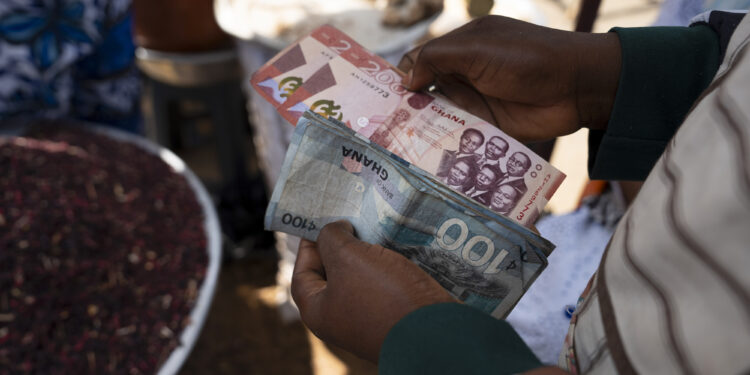GRA Says Cedi Rebound Cuts Government Revenues by 30%
The sharp recovery of the cedi has dealt a significant blow to government revenues, the Commissioner-General of the Ghana Revenue Authority (GRA), Anthony Kwasi Sarpong, has disclosed.
According to Mr Sarpong, the local currency’s appreciation from GH¢15 to about GH¢10.5 to the US dollar within three months has translated into a 30 per cent drop in revenue collections, particularly at the ports where duties are benchmarked in foreign currency.
“If you look at the duties at the port, they are denominated in foreign currency, mostly in USD. And therefore, once the exchange rate, which is overall good for the economy, dropped from 15 to about 10.5, that’s a 30% sharp drop in cedi terms. So obviously, in a split of three months, what comes to you drops by 30%,” he explained on the PM Express Business Edition.
He noted that the extractive industry and upstream petroleum sectors, whose taxes are also paid in dollars, had similarly seen cedi-equivalent receipts fall.
“Once you lose 30% from the rate point of view, you are immediately hit with a 30% drop in cedi terms. But again, that is a short-term measure as well. We want to believe that once the value has stabilised, they are also able to reduce their cost. And through that, other taxes from corporate income tax will rise, so it will also again compensate,” he said.
Despite the short-term setback, Mr Sarpong expressed optimism that revenues would rebound by year-end as lower exchange rates ease import costs and stimulate trade volumes.
“We are confident that because the rates are lower and the rates have come down, importers can import more… while their initial stock that we’re holding gets finished and they are restocking, it’s going to be more, and we will regain the taxes from there,” he remarked.
Structural reforms and tax base expansion
The GRA boss stressed that structural reforms remain key to sustaining government revenues. Central to this, he said, is the introduction of a modified taxation regime targeted at Micro, Small and Medium Enterprises (MSMEs).
“We are introducing within a month what we call the modified taxation, one to define at a minimum base taxes that certain categories of businesses will pay,” he stated.
Mr Sarpong explained that MSMEs with an annual turnover of about GH¢200,000 would be required to pay 3% in taxes — roughly GH¢3,000 to GH¢5,000 annually. With an estimated 5 million such businesses in Ghana, the GRA is targeting about 2 million to be brought into the tax net, potentially generating GH¢10 billion annually.
Digitalisation and compliance
On enforcement, Mr Sarpong revealed that the Authority is developing a digital system to capture and tax online transactions.
“Before the end of the year, we are introducing a digital technology such that transactions that are taking place online, we have visibility of it… and also importantly, deduct the tax component at the point of payment,” he disclosed, describing it as a “game changer.”
He added that the GRA would intensify nationwide tax education in collaboration with stakeholders to improve public compliance and awareness.
“For us, data and technology is the way to go… This is the future of the taxpayer, and we must be future ready now and also into the future,” Mr Sarpong said.
Mr Sarpong maintained that with a combination of reforms, digitalisation and compliance initiatives, the temporary revenue shortfall from the cedi rebound will be offset, safeguarding government finances.








